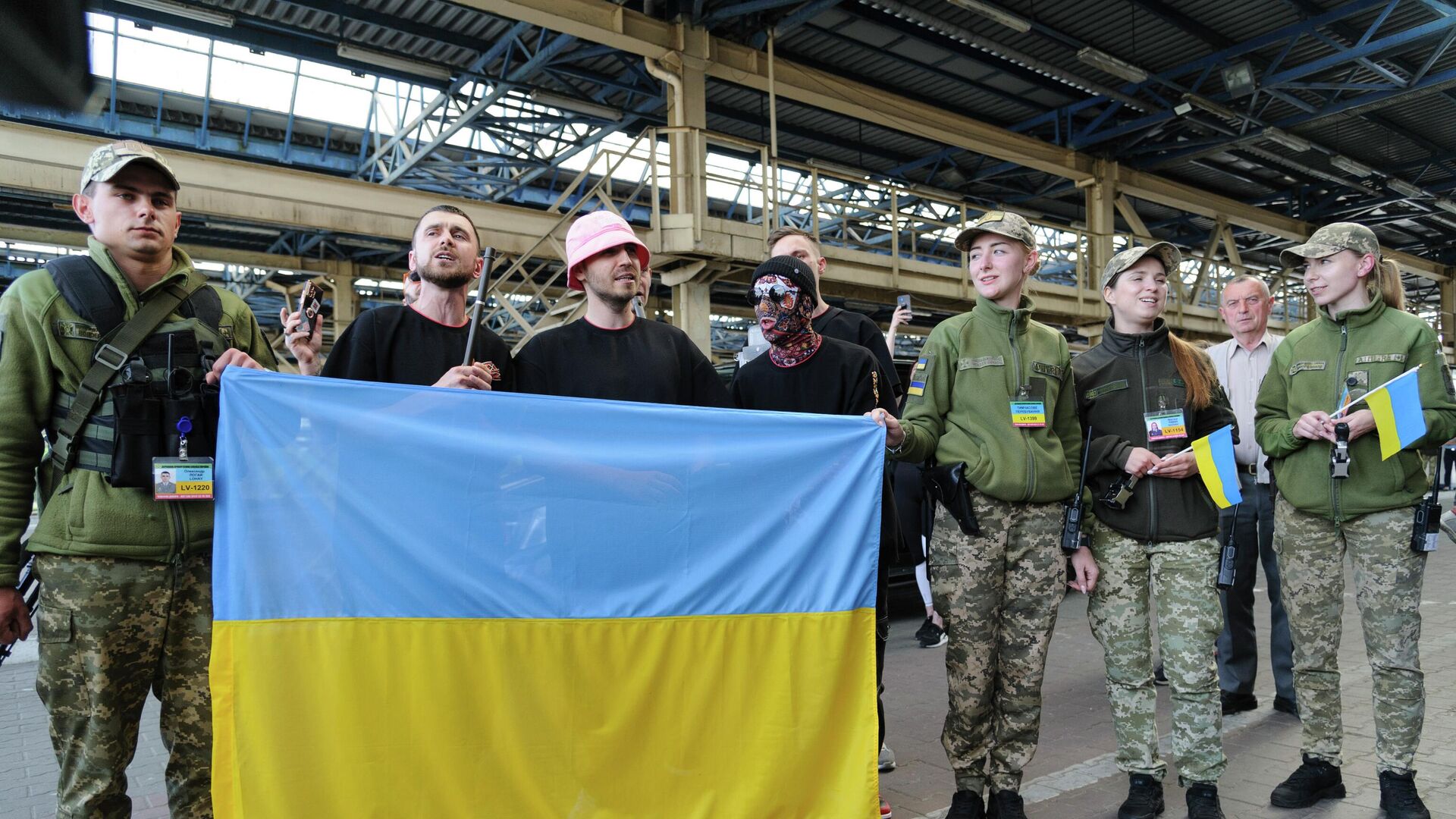Hosting Eurovision 2023 for Ukraine Could Cost BBC License-Fee Payers £17 Million

© AP Photo / Mykola Tys / Oleh Psiuk, center, frontman of Ukraine's Kalush Orchestra, winners of the Eurovision Song Contest, and his band sing with Ukrianian border guard soldiers
Subscribe
The BBC has previously hosted the contest on other countries' behalves in 1960, 1963, 1972 and 1974, when broadcasters in the previous year's winners - the Netherlands, France, Monaco and Luxembourg - decided that they could not afford it.
Hosting the 2023 Eurovision Song Contest on behalf of Ukraine could drain up to £17 million from the BBC's publicly-funded budget.
Eurovision authorities expect the national broadcaster, funded by a license fee levied on anyone owning a television, is expected to cough up between £8 million and £17 million for the event, depending on "local circumstances and available resources".
The revelation adds insult to injury, with Britons currently paying near-double for household bills and to fill their cars hanks to the government's embargo on Russian energy imports — and after Ukraine pipped the UK to this year's prize thanks to a rule change.
The BBC volunteered to host after the 2022 winners pleaded that they could not for "safety and security reasons" due to Russia's ongoing special military operation to demilitarize and de-Nazify the country. Russia itself was excluded from this year's event as part of a wide-ranging cultural and sporting 'cancelling' of the country in the West.
"There are a number of funding options to be explored that will contribute towards delivering a fantastic event and great value for Licence Fee payers," a BBC spokesperson said.
British Digital, Culture, Media and Sport Secretary Nadine Dorries proudly announced that the UK would host next-year's campy competition of cringeworthy pop in a tweet on Monday.
It’s official. Eurovision is coming to the UK.
— Nadine Dorries (@NadineDorries) July 25, 2022
This is Ukraine’s Eurovision and it’s an absolute privilege and honour for the UK to be supporting our friends 🇺🇦🇬🇧 pic.twitter.com/xi3rXu8E2g
"We're exceptionally grateful that the BBC has accepted to stage the Eurovision Song Contest in the UK in 2023," said Eurovision executive supervisor Martin Osterdahl.
"The BBC has taken on hosting duties for other winning countries on four previous occasions," he pointed out. "Continuing in this tradition of solidarity, we know that next year's contest will showcase the creativity and skill of one of Europe's most experienced public broadcasters whilst ensuring this year's winners, Ukraine, are celebrated and represented throughout the event."
BBC director-general Tim Davie said the broadcaster was now on the lookout for a suitable host city, where it would put on an event reflecting Ukrainian — not British — national culture.
"Being asked to host the largest and most complex music competition in the world is a great privilege," Davie gushed. "The BBC is committed to making the event a true reflection of Ukrainian culture alongside showcasing the diversity of British music and creativity."
This year's British entry to the annual festival of terrible musical and fashion taste, 'Space Man' sung by Sam Ryder, won the judges' vote in Turin on May 14 — despite Romania's top two ranking being mysteriously switched around to favor Ukraine.
But thanks to the latest arbitrary rule change by the contest organisers, viewers were allowed to cast votes too — swinging the result for 'Stefania' by the Kalush Orchestra, written to play on the wave of Western virtue-signalling in favour of Volodymyr Zelensky's regime amid Russia's special de-Nazification operation in Ukraine.
The BBC has previously hosted the contest on other countries' behalves in 1960, 1963, 1972 and 1974, when broadcasters in the previous year's winners - the Netherlands, France, Monaco and Luxembourg - decided that they could not afford it.
It has been speculated that Ireland deliberately chose a sub-par entry for the 1995 contest to avoid having to host it again after winning the previous three years in a row.


